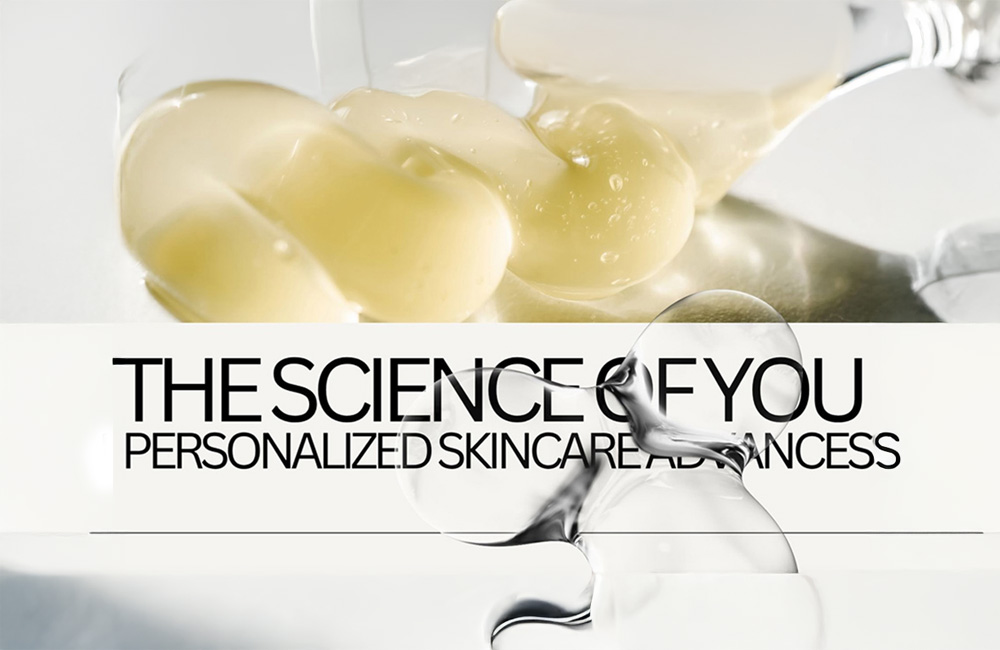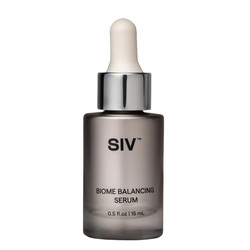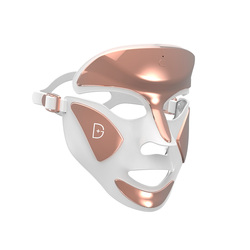The Science of You: Personalized Skincare Advances

In the fast-changing world of skincare, science and technology are driving remarkable innovations. Recent clinical trials are unveiling new anti-aging treatments, while advanced personalization tech promises tailored solutions for each individual.
For skincare enthusiasts, professionals, and curious newcomers alike, staying updated means keeping an eye on the latest research. This article explores the cutting-edge science behind current skincare trends—from breakthrough trial results to emerging personalized approaches—and highlights key developments. It also includes practical tips and curated product recommendations from top online skincare retailers.
Whether you’re focused on proven science or intrigued by smart beauty tech, the future of skincare is becoming more personalized and effective.
 |
Advanced Skincare Trials and Treatments
Experts now know that ongoing inflammation and the natural aging of skin cells play a big role in wrinkles and loss of firmness. As cells age and stop dividing, they release signals that speed up visible aging. To counter this, researchers are studying senolytic therapies—treatments that help clear these old cells. For example, a 2019 study on topical rapamycin found it reduced wrinkles and increased collagen levels in older skin. Another trial using the OS-01 peptide cream showed smoother texture and better moisture retention.
| Skin aging also changes from one decade to the next. Research shows that UV damage and free radicals dominate in your 20s, while metabolic slowdown and cell aging take over in midlife. Later, barrier thinning and collagen loss become key factors. This means that skincare needs evolve with age. Analysts even predict that by 2030, global spending on anti-aging skincare will nearly double as more treatments reach the market. Despite all the innovation, experts agree that topical skincare — like creams and serums — remains the most effective and targeted option. |  |
Key recent findings include:
-
Topical Rapamycin (2019)—Improved skin appearance with fewer fine wrinkles and increased collagen VII.
-
OS-01 Peptide (2024)—A double-blind trial showed reduced wrinkles and enhanced texture and moisture after several weeks.
-
Pterostilbene Emulsion (2025)—A 28-day trial using 0.1% pterostilbene cream improved firmness, elasticity, and smoothness, with thicker skin and higher collagen and elastin levels.
-
Stem Cell Therapy—Early studies using adipose-derived stem cells report visible rejuvenation and improved facial-skin quality, though larger trials are underway.
These results confirm that modern skincare science delivers measurable progress. The 2025 pterostilbene study, for instance, showed statistically significant boosts in skin firmness and collagen—evidence that certain antioxidants truly work. However, success depends on proper formulation, concentration, and consistent use.
Clinicians emphasize that anti-aging improvements take time—usually several weeks or months of regular application. Combining proven essentials like retinoids and vitamin C with innovative actives such as peptides or senolytics offers the best results for long-term skin health.
|
Sources:
|
“Behind every radiant complexion is chemistry in perfect harmony—actives that speak your skin’s language.”
The New Frontier: Personalized, Data-Driven, and Regenerative Skincare
Skincare is entering a new era—one powered by technology, data, and biotechnology. From custom formulas to lab-grown skin, science is reshaping how we care for and heal our skin.
Personalized Skincare
 |
The days of one-size-fits-all products are fading. Brands like L’Oréal are using AI, skin imaging, and environmental data to design skincare tailored to each person’s needs and lifestyle. |
Key innovations in personalization:
|
Wearable Skin Sensors: Real-Time Health Insights
| New wearable devices are giving dermatologists—and consumers—continuous insights into skin health. A Northwestern University team developed a tiny, no-contact sensor that hovers over the skin to measure hydration, CO2, and other gases. This innovation is especially valuable for fragile or burn-damaged skin, as it tracks healing progress and detects infections without touching the tissue. |  |
Breakthroughs in wearable tech:
|
Together, these technologies are reshaping skincare from reactive care to continuous, data-driven wellness.
Gene and Regenerative Therapies: Healing from Within
Regenerative medicine is making what once sounded like science fiction a reality. In 2025, a Stanford-led Phase 3 trial for dystrophic epidermolysis bullosa (EB)—a severe genetic blistering disorder—proved that gene-corrected skin grafts can heal wounds, reduce pain, and restore normal skin function. These engineered grafts have since received FDA approval, marking a historic first in dermatologic gene therapy.
Highlights in regenerative skincare science:
|
Sources:
|
AI and Personalized Skincare (Beyond Trials)
The skincare industry is entering a new era of AI-driven personalization, where products and routines adapt to each person’s unique biology, lifestyle, and environment.
Brands like L’Oréal and Estée Lauder now use AI and clinical data to design customized skincare programs that target specific needs more precisely. One emerging innovation is the digital skin twin—a virtual model built from genetic and imaging data that predicts how skin may respond to treatments, signaling a shift from reactive to predictive skincare.
For everyday users, AI tools and apps such as AI skin analyzers and digital quizzes make personalization simple, offering ingredient or product suggestions based on skin scans or photos.
Still, experts note that AI complements—not replaces—clinical science. True results come from pairing technology’s precision with proven, evidence-based skincare formulas.
| Sources: |
Product Recommendations
To bridge cutting-edge science with daily routines, here are some innovative skincare products that bring advanced tech to your own home or skincare kit. These are not medical treatments but reflect the science trends above:
C$ 109.00
C$ 80.00
C$ 615.00
“Skincare is no longer guesswork—it’s guided by evidence, innovation, and empathy for your skin’s story.”
In Closing: Science-Powered Skincare Ahead
The future of skincare is personalized, data-driven, and rooted in real science. From gene therapies that heal damaged skin to wearables that track skin health, innovation is turning possibilities into proven results.
AI and big data are helping create regimens tailored to each person’s skin, but true progress depends on clinical evidence. The latest trials show that science-backed ingredients and precision diagnostics are shaping a smarter, more effective skincare era.
As consumers, staying informed and choosing products aligned with research—like those from eSkinStore—ensures we benefit from these advances. The message is simple: science and skincare are evolving together, and the best is yet to come.
 |


